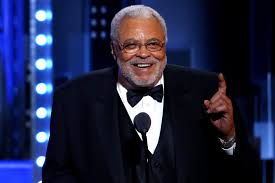Shyam Benegal, an iconic figure in Indian cinema who revolutionized storytelling with his socially conscious films of the 1970s, has passed away at the age of 90 due to chronic kidney disease.
Renowned for his groundbreaking contributions as a director, editor, and screenwriter, Benegal was instrumental in challenging the norms of mainstream Bollywood. His films, including Ankur (1974), Nishant (1975), Manthan (1976), and Bhumika (1977), brought the harsh realities of rural and marginalized India to the forefront, earning him a revered place in cinematic history. Known for his subtle yet impactful narratives, Benegal’s work spotlighted the struggles of ordinary people, redefining the purpose and potential of Indian cinema.
Benegal passed away on Monday at Mumbai’s Wockhardt Hospital, as confirmed by his daughter, Piya Benegal. His long battle with chronic kidney disease had intensified in recent years, ultimately leading to his demise. The Press Trust of India reported that his cremation would take place on Tuesday, marking the end of an era for Indian cinema.
Paying tribute to her father’s legacy, Piya described him as a visionary who deeply understood the intersection of art and social change. On social media platform X, tributes poured in from across the country, with filmmakers, actors, and political leaders expressing their grief and admiration for the trailblazing artist.
Among the many tributes, filmmaker Mahesh Bhatt celebrated Benegal’s unpretentious storytelling, calling his films “raw and real, about the struggles of ordinary people.” Indian Prime Minister Narendra Modi also honored Benegal’s profound impact on cinema, stating that his works would continue to resonate with audiences from all walks of life. Actor Manoj Bajpayee described Benegal as a legend and visionary whose work inspired generations.
Notably, Benegal was a mentor to some of Bollywood’s finest actors, including Shabana Azmi, Smita Patil, Naseeruddin Shah, and Om Puri, who went on to achieve critical and commercial success. Naseeruddin Shah, in a heartfelt post, referred to Benegal as his “foster father,” acknowledging the filmmaker’s role in shaping his career and life.
Benegal’s films were deeply rooted in social issues, often reflecting the socio-economic realities of a developing India. His debut feature, Ankur, explored the feudal divide in rural India, while Manthan depicted the story of the country’s revolutionary cooperative dairy movement. These films, crafted with conviction and authenticity, resonated with audiences and critics alike, paving the way for a new wave of Indian cinema.
Beyond the silver screen, Benegal was also celebrated for Bharat Ek Khoj (1988), a 53-episode television series based on Jawaharlal Nehru’s Discovery of India. The series delved into India’s complex history, chronicling its journey from ancient times to modernity, and remains a landmark in Indian television.
In recent years, Benegal continued to explore compelling narratives. His 2023 biopic on Sheikh Mujibur Rahman, the father of Bangladesh’s independence, marked another feather in his cap. The film highlighted Rahman’s pivotal role in Bangladesh’s freedom struggle against Pakistan in the 1970s, further cementing Benegal’s reputation as a storyteller who transcended borders.
Benegal’s ability to interweave historical and cultural contexts into his work made him a unique voice in Indian cinema. His contribution extended beyond feature films and television; he directed over 900 sponsored documentaries and advertising films during his tenure in the advertising industry, showcasing his versatility as a filmmaker.
Born in 1934 in Hyderabad, Benegal’s passion for storytelling emerged early in life. After earning a degree in economics from Osmania University, he founded the Hyderabad Film Society, fostering a community of cinephiles and filmmakers. His journey into filmmaking was complemented by a successful stint in advertising, where he honed his skills in crafting impactful narratives.
Benegal is survived by his wife, Nira, who shared his life and journey for decades. His passing leaves a void in Indian cinema, but his legacy as a pioneer of socially relevant filmmaking continues to inspire and influence generations of filmmakers and audiences alike.









